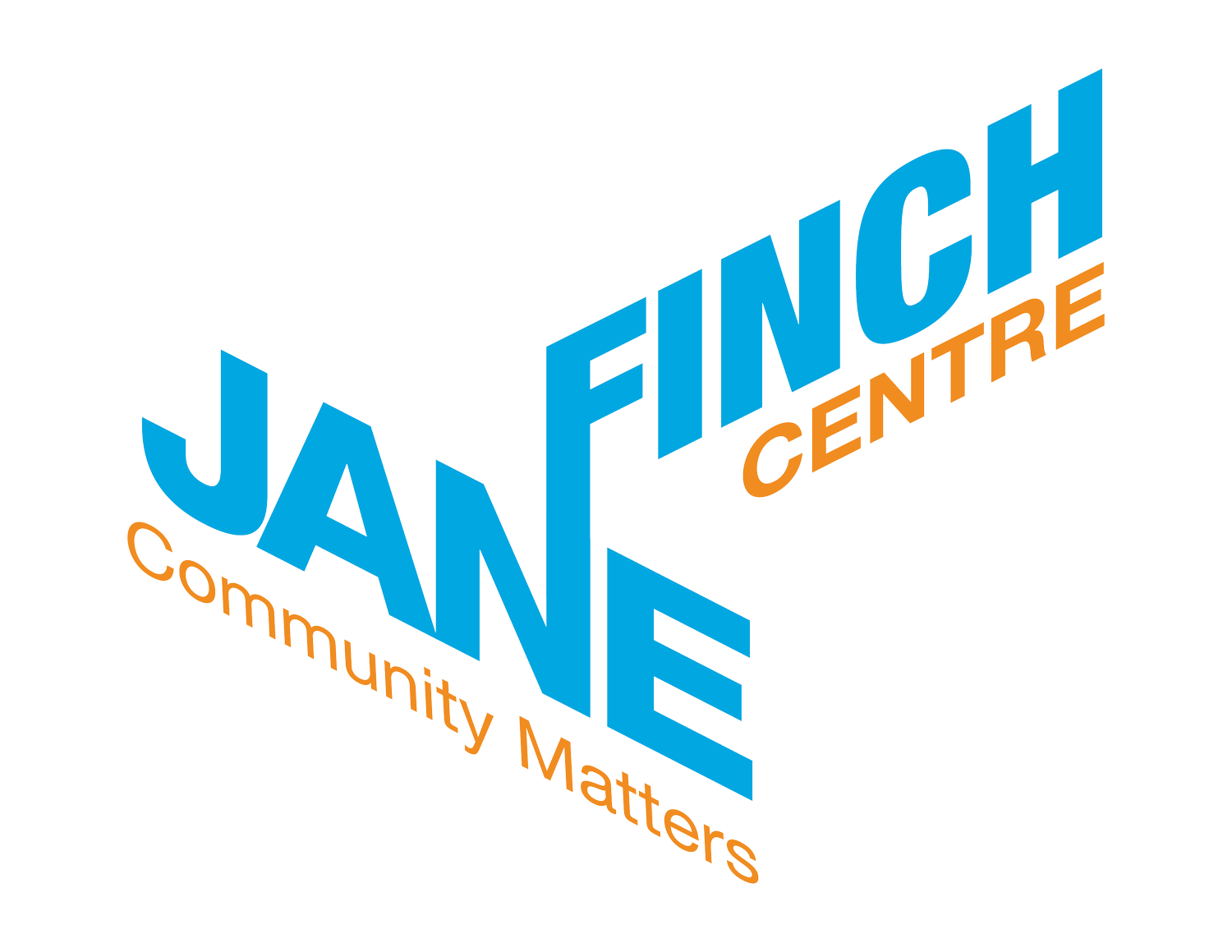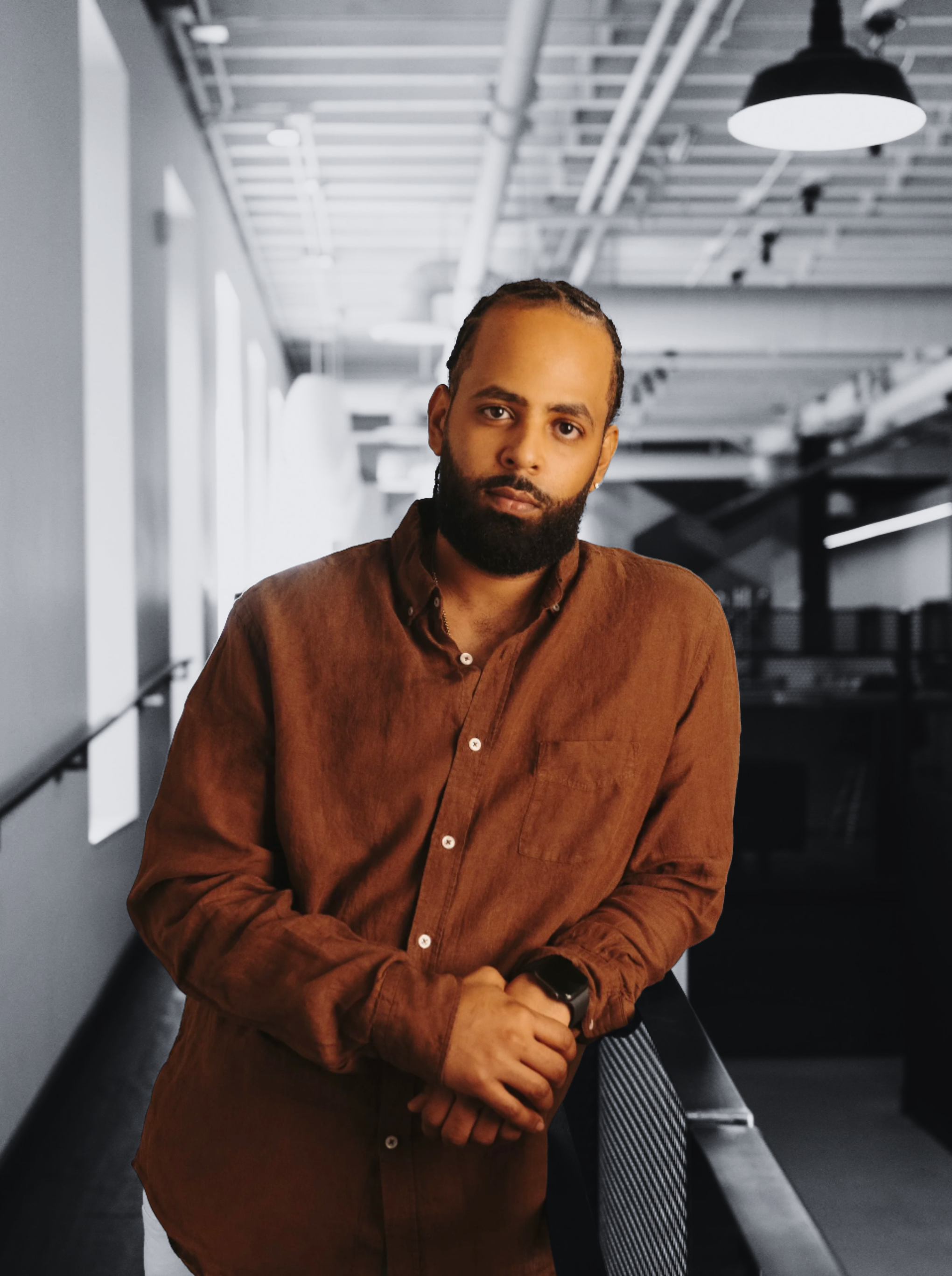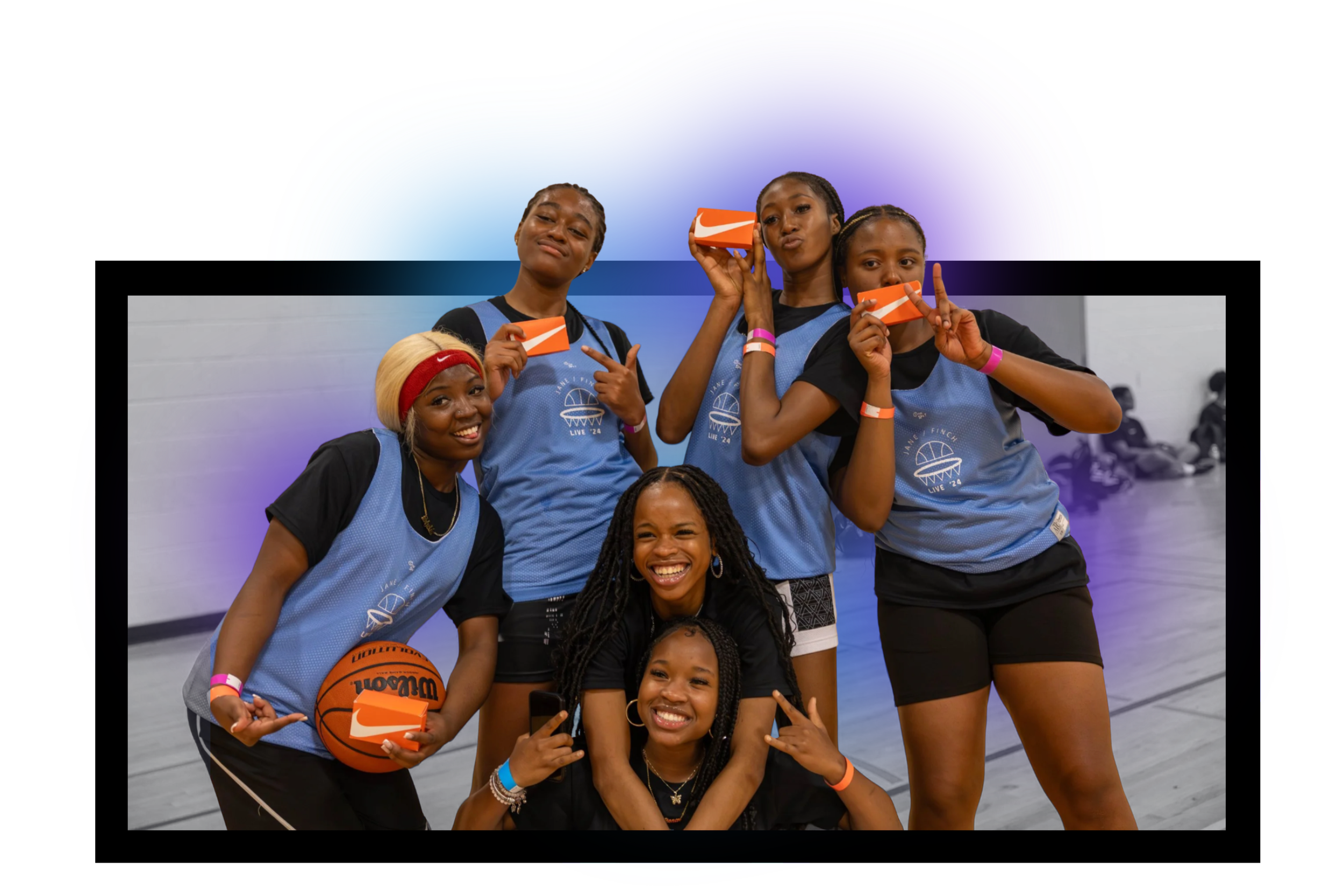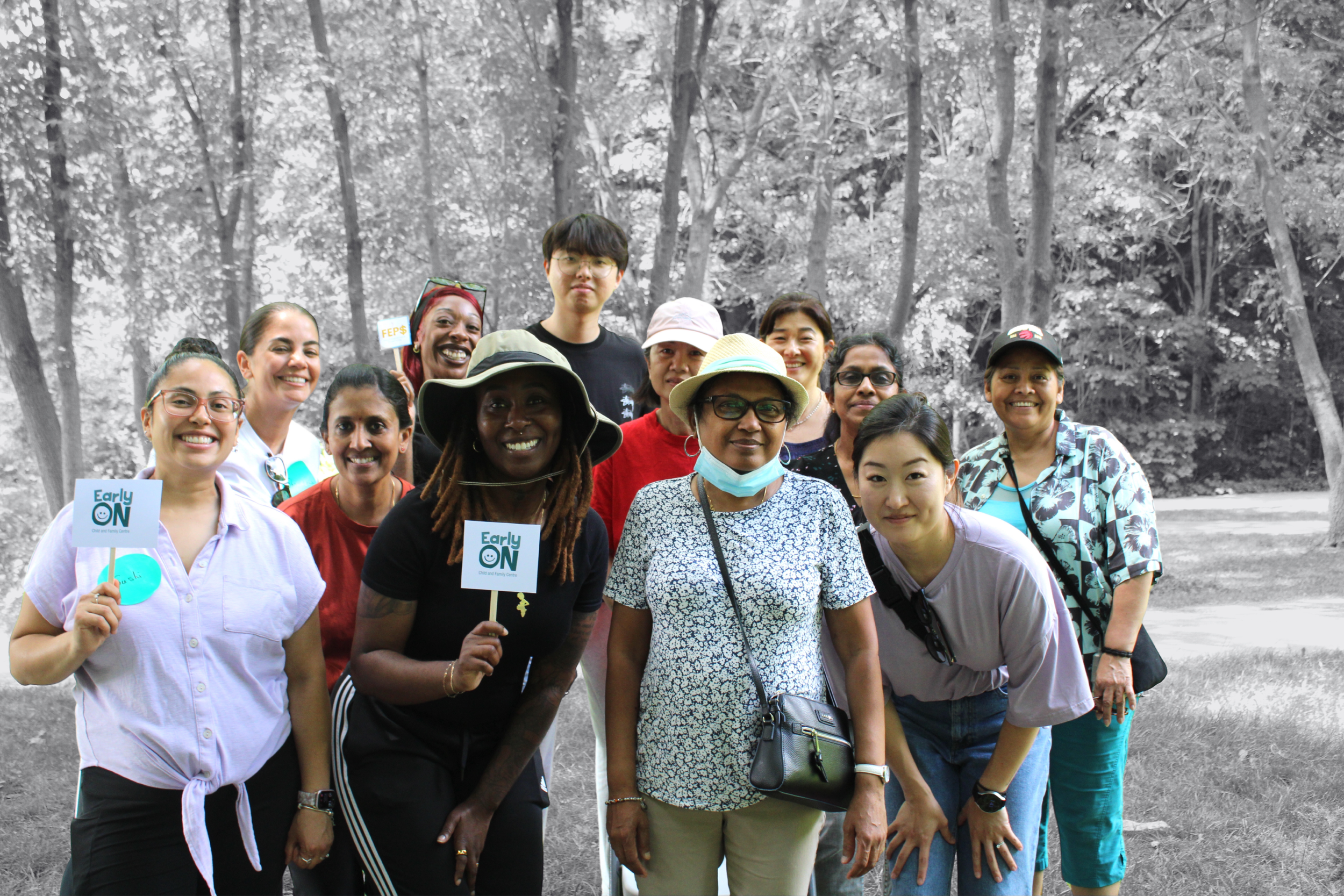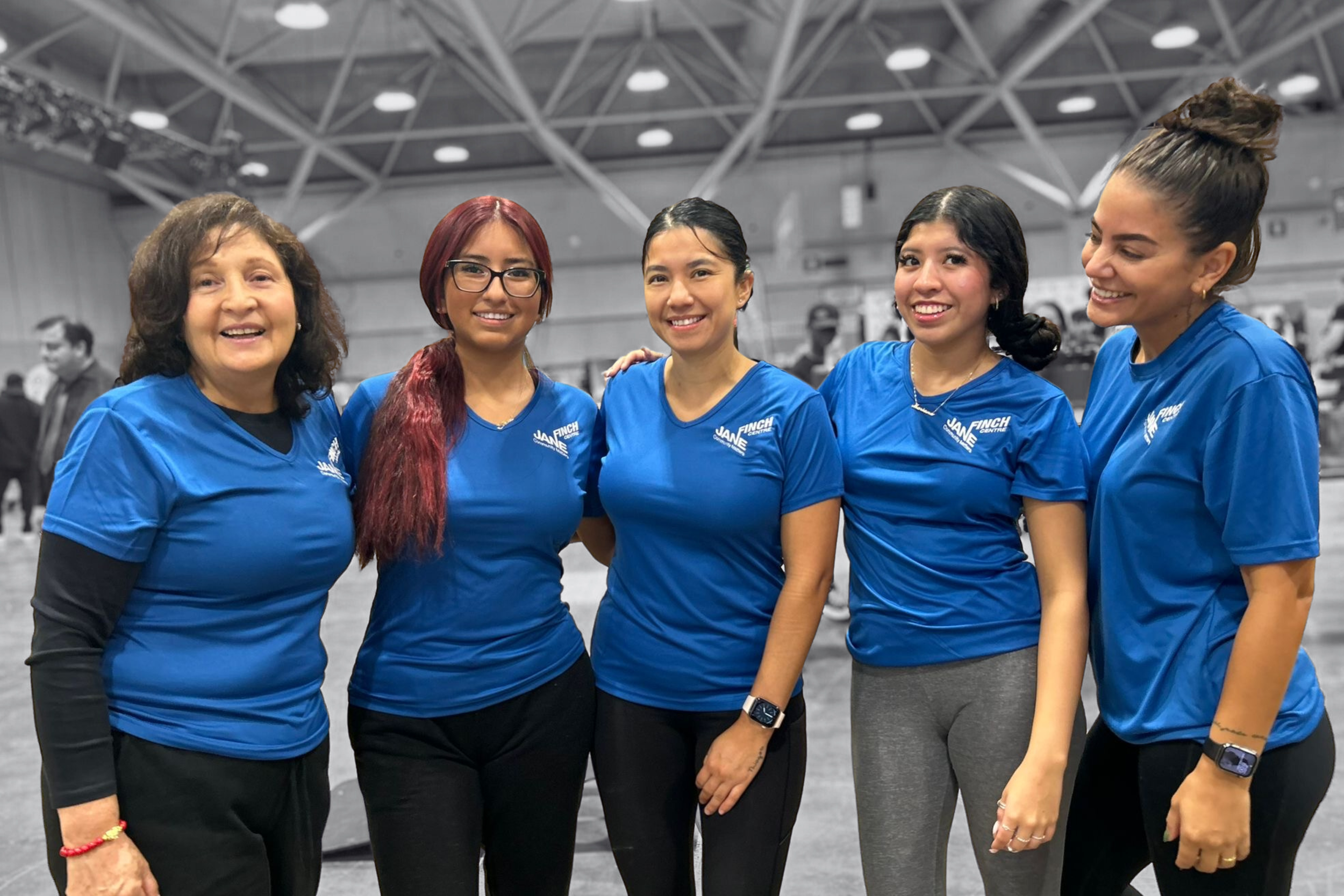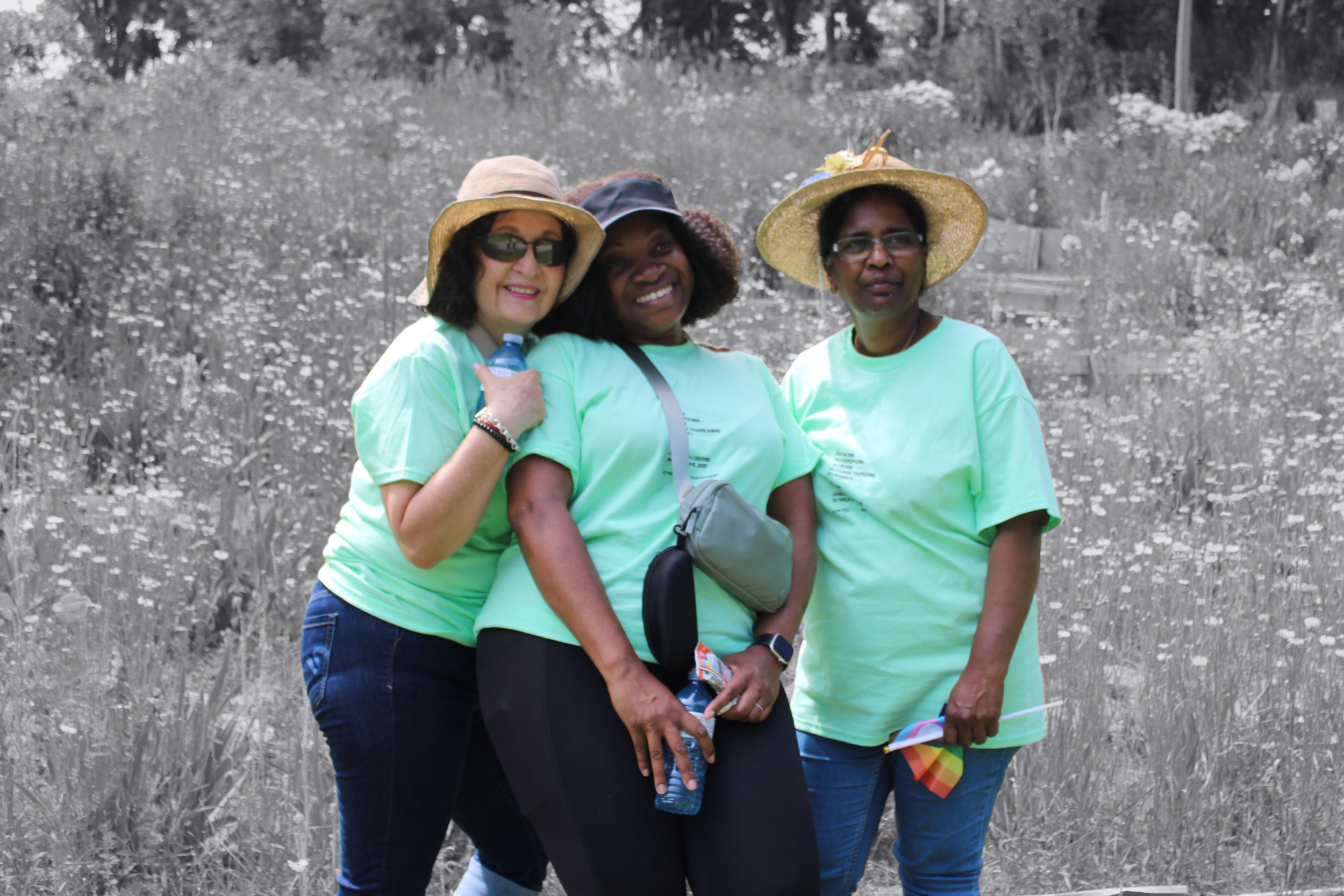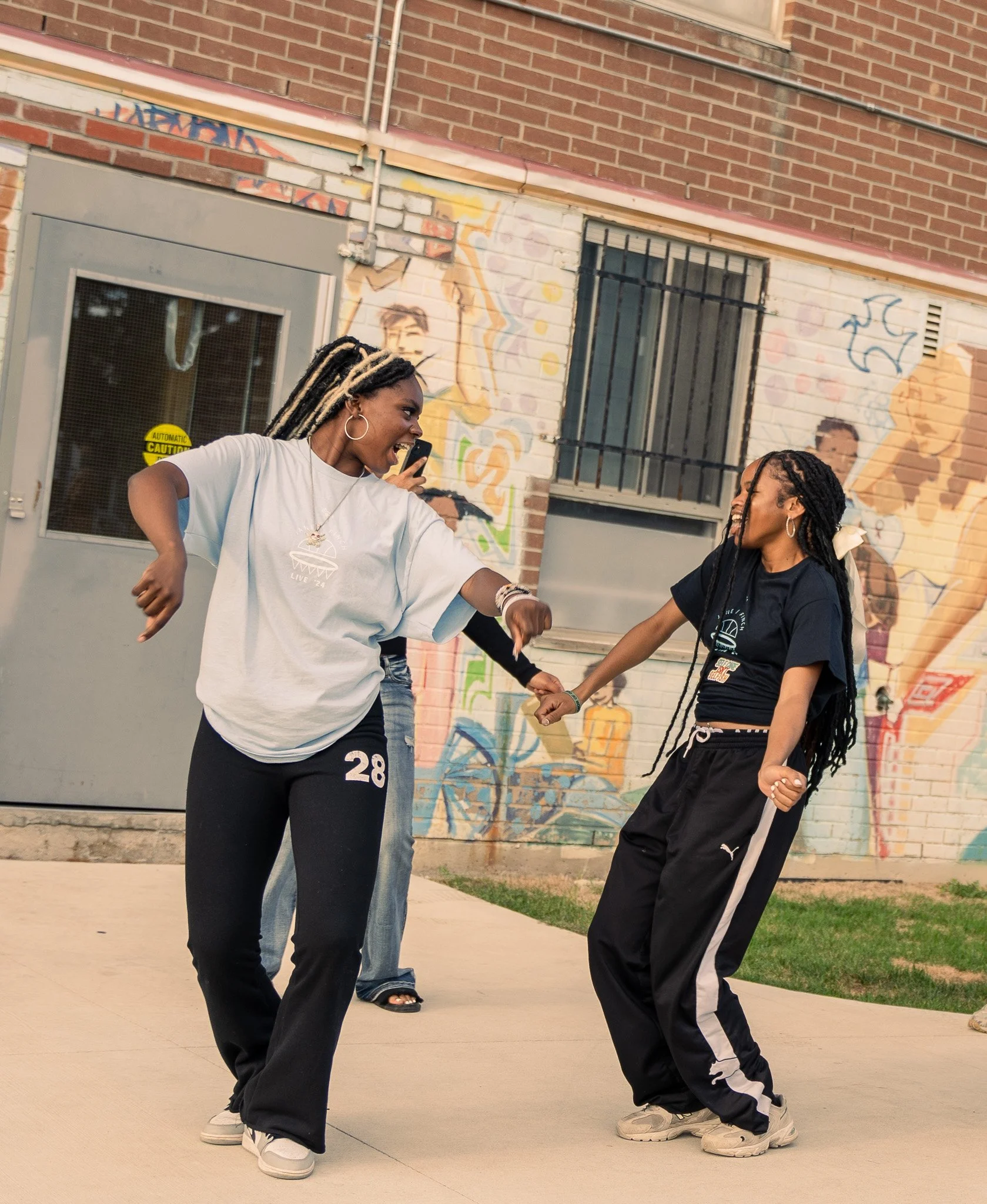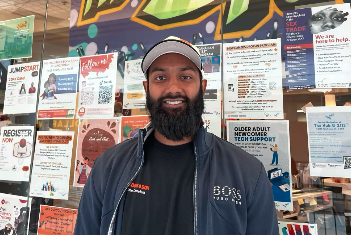
2024 - 25
Jane/Finch Centre
ANNUAL REPORT
Land Acknowledgement
The Jane/Finch Centre acknowledges that our presence in Tkaronto, on the traditional territory of the Huron-Wendat, Petun, Anishnabeg, and the Mississaugas of the Credit, is built on stolen land, shaped by injustices, colonialism, and white supremacy. As we operate in a city governed by the Dish with One Spoon Wampum Belt Covenant, we honour the First Nation, Inuit, and Métis communities who have and continue to steward these lands and waters.
We also recognize that our digital footprint extends across other Indigenous territories. Platforms like Zoom, based on the traditional lands of the Muwekma Ohlone people in San Jose, and Canva, headquartered on the lands of the Redfern Aboriginal Community in Sydney, Australia, enable our virtual connections. We remain deeply aware of the incalculable debt we owe to these communities and to those whose lands and labor make our technologies possible.
We acknowledge the historical and ongoing impact of the transatlantic slave trade on African peoples. Their forced labor has been foundational to much of our current wealth, and their descendants continue to face the effects of systemic racism and colonial legacies. We honour their resilience and the crucial work being done to combat racism and build a more just future.
In all spaces—physical and digital—we commit to decolonization, reconciliation and restorative justice, striving to ensure our actions are anti-oppressive and anti-racist. This is an ongoing process of accountability and humility.

A Letter to Our Community
Dear friends and neighbours,
This past year we’ve felt the weight of rising costs, growing inequities and political uncertainty. Yet we’ve also seen determination, care and the power of our community in action. Through it all, the Jane/Finch Centre has stayed grounded in the values that have guided us for nearly 50 years: resident leadership, advocacy and community care.
Food insecurity has become part of daily life for many families in Jane-Finch. The challenge is not just having enough to eat, but finding food that is affordable, nutritious, and culturally relevant. Our food bank waitlists at EarlyON and The Spot reflect a city-wide reality: demand for food support is growing faster than the resources available. Other vital supports are also stretched thin. Long waitlists and limited availability make it harder to access mental health services, housing, or urgent medical care. That’s why community-led programs and advocacy are more important than ever. They meet immediate needs while building the foundation for a stronger, more resilient community.
This year unfolded during a time of political uncertainty and widespread grief. The genocide in Gaza shows the devastating consequences of denying people their human rights. At the same time, equity work across North America is under attack, harmful narratives are spreading, and communities are feeling the impact of funding cuts and the loss of critical protections. At the Jane/Finch Centre, we stand in solidarity with those fighting for justice, and we continue to push back against policies and narratives that harm our community.
Through all of this, our youth have shown incredible leadership. They are not only participants in our programs, but leaders shaping their own futures and the future of Jane-Finch. Through the Youth Advisory Council, young people guide program design and bring their voices into decision-making. At the same time, high rates of youth unemployment continue to affect Black, newcomer, and racialized youth. In response, we have expanded our employment programs and partnerships, offering both pathways to meaningful work and paid leadership opportunities that give youth the space to lead, share their voices, and be part of the decisions that shape their lives and their neighbourhood.
Our Financial Empowerment and Problem-Solving (FEPS) program has continued to be a vital service for residents facing barriers to economic stability. This year, we filed more than 2,100 tax returns for families and individuals, helping them access important income-boosting benefits. Our team also provided referrals, one-on-one support for accessing other services, and guidance with applications for programs such as the Canada Dental Benefit and the Registered Disability Savings Plan. While FEPS continues to rely on short-term funding, we have continued advocating with our partners for longer-term support, ensuring that financial empowerment is not treated as a temporary solution, but as foundational support that helps residents achieve long-term financial stability.
Storytelling has also been a powerful tool for change this year. Bias Training, By Us, co-designed with local youth, launched at the start of the year to help companies and institutions rethink how they address bias. This is just one of many ways our community is shifting narratives about Jane-Finch, centring youth voices and challenging systemic inequities.
This year we also launched a three-year partnership with United Way Greater Toronto to advance priorities identified in the Jane-Finch Community Development Plan. Our first round of Jane-Finch Community Action Grants is already supporting projects that create community space, promote inclusive economic opportunities and protect residents from displacement.
As we approach the 50th anniversary of the Jane/Finch Centre and the 20th anniversary of The Spot in 2026, we remain committed to honouring the legacy of the residents who built this agency in 1976 by evolving our services to reflect the priorities of our community. The next 50 years will call for equity-driven leadership, ongoing advocacy, and a continued focus on community priorities. We will move forward with intention, embracing intergenerational approaches to justice and care.
We remain hopeful about what the next year will bring. Not because the challenges are small, but because our community is powerful and determined. We know that together, we are building something deeper than just services. We are building a future rooted in capacity-building, community-led development, and the strong belief that the people of Jane-Finch deserve nothing less.
Thank you for walking this path with us, for showing up and for being part of this community.
Michelle & Mustafa
A Message from our executive director & Board CHair
Michelle Dagnino
Executive Director
Mustafa El Amin
Board Chair

The Heart of Who We Are
The Jane/Finch Centre is a community-based organization driven by passion, innovation and a strong commitment to social justice, community engagement and collaboration.
OUR MISSION
Our vision is a healthy Jane and Finch community - strong, inclusive, socially and politically active through diversity, opportunity and participation.
OUR vision

Impact in Action
Residents in Jane and Finch continue to face growing pressures: rising costs, limited access to essentials, long waitlists for mental health supports, and gaps in addiction services. Language and system navigation barriers make it harder for newcomers and non-English speakers to access benefits and supports, while many families—even those working multiple jobs—struggle to make ends meet. These challenges affect all ages, from children needing early learning opportunities to seniors requiring financial guidance and health supports.
Despite these systemic barriers, our teams stepped in with targeted, culturally responsive programs, practical guidance, and hands-on advocacy to help residents meet their immediate needs and work toward long-term stability.
The Systems We’re Challenging
This year, our work reached thousands of residents across Jane and Finch. More than just numbers, these represent people accessing food, housing supports, mental health services, settlement assistance and youth programs. Our teams continued to provide practical help and support, working to strengthen the well-being of our community.
Our Story in Numbers
360
Meals were delivered to older adults and adults through our community wellbeing and seniors programs.
934
Children participated in our EarlyON programming.
2105
Taxes were filed for low-income individuals and families in Jane-Finch/Black Creek.
This year, our Youth Violence Prevention Program continued to make a meaningful impact in the lives of young people. Our program supported youth ages 13–29, including those involved in or associated with gangs and the justice system. We provided targeted social development workshops and culturally relevant therapy that address the root causes of youth violence.
96% of youth felt more confident avoiding violent situations since joining the program.
98% of youth reported developing new skills to avoid the cycle of violence.
90% gained increased awareness of positive coping strategies for trauma and grief.
Community Voices
“The staff at EarlyON are truly welcoming, kind & knowledgeable. Their warm approach makes every visit enjoyable, and they always take time to engage with both the children and the parents. We feel comfortable, supported and valued every time we attend.” - EarlyON Parent
These numbers reflect the impact of our work across four key areas of focus this year: employment, newcomer programs, food security, and economic resilience.
OUR AREAS OF FOCUS
Employment OUTCOMES
121
Youth secured employment with support from our employment team.
1005
Youth accessed job readiness support (resume-prep, interview coaching, job leads).
10
Justice-involved youth entered paid training, employment or peer connector roles with support from our employment and youth violence prevention program.
83
% of youth graduates from our career navigator film training program with POV and UWGT found employment, including 13 in film and TV roles.
Newcomer PROGRAMS
1816
Newcomers were supported during the 2024-25 year through various services.
15
Clients became Canadian citizens with direct support.
97
% of participants in our intergenerational program reported feeling more connected to their community.
97
% of participants in our intergenerational program reported improved mental health and well-being.
Food Insecurity
360
Meals were delivered to seniors through our hot meal program.
Families received support through our food bank at The Spot.
3408
ECONOMIC RESILIENCE
2105
700
Taxes were filed for low-income individuals and families in Jane-Finch/Black Creek.
Walk-in and phone inquiries were received and supported by the FEPS team.

Neighbours Supporting Neighbours
Our programs and services are developed from the realities our community faces. Each department works to break down barriers created by systemic inequities, while building spaces of support, connection, and opportunity. The updates below show how this work took shape in the 2024–25 year—what we achieved, what we learned, and how we continue to support our community.
-
Our settlement services team supported more than 2,000 newcomers this year, helping individuals and families through housing, employment, and emotional transitions. Using a wraparound approach, we combined one-on-one case management with workshops and group programs to respond to the realities people face when building a life in a new country.
This year we expanded community-based programming, including women’s groups, conversation circles, youth life-skills programs, and intergenerational activities that brought newcomer seniors and youth together. Wellness initiatives like yoga, Cook & Chat, and peer mentorship helped participants manage stress, find connection, and build a sense of belonging.
Partnerships made this work stronger. With Vasantham Wellness Centre and LOFT Tamil Seniors, we addressed mental health, addiction, and civic engagement needs among Tamil newcomer men and seniors. Our intergenerational program, funded by the Minister for Seniors & Accessibility, exceeded expectations, engaging 71 participants. Nearly all said they felt more connected, gained new skills, and experienced improved mental health.
At the same time, systemic barriers remain. The housing crisis is the most urgent need, especially for women-led families. Employment precarity is growing, refugee claims are rising, and the lack of affordable childcare continues to hold back newcomer women. Against this backdrop, our settlement services remain a trusted place where people find both immediate help and long-term pathways to stability and belonging.
-
Our EarlyON programs continue to provide families with young children a welcoming space to learn, play, and connect. This year, we supported 934 children and 738 adults, building stronger networks for families in our community.
We expanded our reach through new partnerships with the Children’s Book Bank, Surrey Place (Infant Vision presentations), Holland Bloorview (speech and language workshops), and French EarlyON (French Story Time). These collaborations brought new opportunities for children to learn and grow, while supporting parents with resources and information.
In summer 2024, we partnered with Pedalheads to host a bike camp for 60 children ages 5–8, creating safe spaces for physical activity, skill-building, and fun. We also secured new funding in Ward 7, which allowed us to open three additional program locations at Carmine Stefano Community Centre, Jane/Sheppard Library and Black Creek Library.
EarlyON also played an important role in addressing basic needs for families. Through our Christmas Toy Distribution, we connected 368 children with gifts through CHUM’s support and another 422 children through Santa Box. Our food bank served about 100–120 families on a regular distribution list, with additional food provided to others when donations allowed. This year, we saw a sharp increase in families seeking food support, with new parents in particular asking for baby food and diapers—a clear reminder of the pressures families continue to face.
EarlyON continues to be a hub for both early learning and community support, ensuring that families with young children in Jane and Finch can access the resources, care, and opportunities they need to thrive.
-
This year, our community planning and development work focused on advancing local priorities, strengthening resident leadership, and ensuring equity is centred in neighbourhood planning. In total, 1,696 people were engaged through our projects and initiatives.
We partnered with the youth-led Sex Trafficking Prevention Group (STPG) on the SafeTO Mapping Prevention Project. Together, we conducted research to build a digital map of community services related to safety and youth violence prevention. Through surveys, interviews, and workshops, we heard directly from youth, residents, and service providers about gaps, strengths, and opportunities in our neighbourhood. The findings showed a lack of awareness of existing programs, high program turnover, weak referral systems, and the absence of consistent metrics across agencies. We also heard clearly that grassroots and frontline organizations need sustainable funding to be able to participate fully in collaborative work. This project underscored both the urgency and the potential of stronger networks and long-term investments in community safety.
We also launched a new three-year partnership with United Way Greater Toronto to deliver backbone supports that advance neighbourhood priorities, including the Jane-Finch Community Development Plan. This work included coordinating the first round of Jane-Finch Community Action Grants and supporting initiatives related to community space, inclusive economic development and anti-displacement.
Transportation equity was another key focus. We supported community engagement in the City of Toronto’s RapidTO: Jane Street consultations, through surveys, in-person sessions, and virtual discussions. With residents, grassroots leaders, and groups like TTCriders, we successfully advocated against planned bus stop removals—highlighting how critical accessible transit is for working-class, racialized neighbourhoods. This outcome shows the importance of embedding equity into city-wide transit planning.
Our role as a trustee also helped strengthen local leadership. In 2024–2025, we provided trusteeship services for eight local artists, grassroots groups, and non-profits, supporting program delivery, financial oversight, mentorship, and access to space. 29 resident leaders contributed 521 volunteer hours to these projects, a testament to the strong capacity and commitment that exists in Jane and Finch when opportunities and support are available.
-
This year, our community wellbeing team supported approximately 1,100 residents, including seniors, youth, adults, and families, helping them navigate complex needs and access critical services.
Our Senior Financial Empowerment and Resiliency (SFER) Program engaged 222 seniors in workshops on financial planning, fraud awareness, wills, and power of attorney, building confidence and reducing vulnerability. Our Hot Meal Delivery program provided 360 meals to older adults experiencing food insecurity, while 605 participants joined our outreach and community engagement events.
Through collaboration with the HUB@2115 and service navigation, residents received urgent wraparound care, including mental health supports, with 47 individuals supported this year. Our Talk It Out, Work It Out program recorded 187 visits, offering seniors opportunities for movement, social connection, and wellbeing.
We also expanded clinical support for Black youth and children in Northwest Toronto through the Black Health Planning Funding Opportunities, funded by Ontario Health—providing culturally responsive mental health services to better meet the needs of Black families in our community.
-
Our Financial Empowerment and Program Solving (FEPS) program supported residents facing complex financial challenges, helping them access benefits, navigate systems, and build long-term stability. Over the past year, we served 2,974 individuals, providing guidance, crisis support, and financial empowerment tools.
A major focus was helping low-income residents access tax-related benefits and health supports. We filed 2,105 tax returns, enabling clients to access critical benefits such as GST, CCB, and Trillium. Beyond taxes, we assisted 138 residents with Canada Dental Benefit applications, and supported 107 clients with Disability Tax Credit (DTC) forms and Registered Disability Savings Plan (RDSP) guidance. These services directly increase household income and access to essential care.
We saw a surge in walk-ins and phone inquiries, with over 700 requests for urgent support related to food, housing, and income insecurity. Our staff provided 178 referrals to food banks and emergency programs and offered 35 instances of informal financial or emotional counseling for residents facing extreme hardship. Services were offered in multiple languages, including English, Spanish, French, Twi, and Vietnamese, with language barriers noted in about 15% of appointments.
The rising cost of living, limited income supports, and stretched community services have increased both the volume and complexity of client needs. Many families—particularly newcomers, seniors, and single-parent households—struggle to meet basic needs, while frontline staff work tirelessly to provide timely support, guidance, and advocacy.
Residents are increasingly seeking out programs like the Disability Tax Credit, RDSP, and Canada Dental Benefit to maximize income and access essential care. This trend reflects both growing awareness and the urgent need for responsive, hands-on support. At the same time, language barriers, long waitlists, and system-wide capacity challenges continue to make it difficult for residents to fully access services.
Through FEPS, we continue to meet residents where they are—offering practical, culturally responsive support, connecting them to critical services, and helping them take steps toward financial stability and resilience.
-
Our youth programs continued to support young people in Jane-Finch in navigating the challenges they face every day — from violence in the community to barriers to employment, education, and mental health supports. Through The Spot, we created safe spaces where youth can connect, learn, and build skills while having their voices at the centre of the work.
This year, we expanded our youth leadership network to 12 members (ages 16–18). Youth co-designed programs, joined hiring panels, acted as peer connectors, and received honoraria recognizing their contributions. We also hosted the youth violence prevention basketball tournament, Jane Finch Live ‘24, bringing together over 200 youth from Jane-Finch, Rexdale and Regent Park to foster unity across communities facing conflict.
Our focus on wellness and career pathways continued with strengthened partnerships with Jack.org and SickKids, which expanded access to culturally affirming therapy supports and introduced youth to careers in wellness fields. The career navigator film training program, launched with POV and UWGT, helped 83% of graduates find employment, including 13 youth in film and TV roles.
Over the year, 2,066 youth accessed services at The Spot. Employment supports reached hundreds of youth, including resume coaching, job leads, and one-on-one case management. Wellness and safety programs supported youth navigating violence, trauma, and mental health challenges, while daily drop-in spaces and group programs provided connection, mentorship, and a sense of belonging. Despite ongoing systemic barriers, our youth continue to demonstrate leadership, resilience, and creativity.
-
At 4400 Jane Street, our community resource centre continues to be a trusted space where residents turn for support. This year, 3,581 people came to us for help with both immediate needs and long-term goals.
We assisted residents with resumes, forms, and government documents, and shared information about social programs, health services, and education opportunities. These services help break down barriers that often prevent community members from accessing the supports they deserve.
One of the greatest needs we saw this year was access to technology. In our community, the digital divide is not about whether the internet exists—it’s about whether families can afford it, and whether every household has enough devices for everyone. Too often, youth, parents, and elders are left at a disadvantage. Research confirms what we see daily: affordability, not infrastructure, is the real barrier (The Dais, 2024).
That’s why our free computer lab is such an important resource. Over the past year, more than 1,250 residents used it—to apply for jobs, finish homework, fill out forms, access benefits, or stay connected with loved ones abroad. What may look like a simple service is actually about leveling the playing field—ensuring people in Jane and Finch can fully participate in today’s digital world.
The community resource centre also acts as a gateway into other programs and services at the Jane/Finch Centre. From direct supports to referrals and technology access, it provides residents with the tools they need to address today’s challenges and move toward their future goals.

Advocacy Rooted in Community Power
Our advocacy is shaped by the voices, leadership, and priorities of our community. This year, our work went beyond delivering programs and services—we built spaces where residents, youth, and partners could lead conversations, influence decisions, and strengthen collective action. Together, we are challenging systems, amplifying community voices, and shaping solutions.
Community-Led Leadership and Storytelling as Resistance: Bias Training, By Us
In January 2025, we launched Write Us Off — a campaign co-created and led by Jane-Finch youth.
For too long, our community has been “written off” through negative stereotypes, harmful media portrayals and systemic barriers. In response, we developed a bias training called Bias Training, By Us, to support companies looking to strengthen their DEI initiatives.
Each module was developed in partnership with our youth staff and trainers — all of them Jane-Finch residents — to challenge bias and spark real conversations about equity. At the same time, the campaign invites businesses to “write us off” in a new way: by making a charitable donation that directly supports youth programming in our community, while receiving a tax receipt in return.
Write Us Off is not traditional fundraising. It’s about centring youth voices, amplifying youth thought leadership and building stronger, more equitable connections between businesses and the Jane-Finch community. Learn more about the campaign here.
Black Creek Fair Economies:
Our Black Creek Fair Economies project continued to connect residents with local employment opportunities. In September 2024, we hosted two job information sessions in partnership with the TTC, along with a resume support workshop in collaboration with JVS Toronto. These sessions helped residents prepare for and access meaningful work.
Between October 1 and December 31, 2024, 533 applications were submitted from residents in our four local postal code areas, resulting in 48 new hires. This initiative demonstrates how providing targeted information, skills support, and community connections can create real employment opportunities for local residents.
Youth Leadership Network:
This year, we expanded our youth leadership network to 12 members, ages 16–18. These young leaders played an active role in shaping programs, joining hiring panels, and acting as peer connectors in the community. Some of our youth groups in the youth leadership network include the Youth Advisory Council, the Sex Trafficking Prevention Group (STPG), and our girls’ group, with a youth leader coordinating support across all groups. Members of the network received honoraria, recognizing the value of their time, expertise, and leadership. By centring youth voices, the network ensures our programs are responsive, relevant and led by the people they serve.

Collective Impact & Partnerships
-
We facilitated community involvement in the City of Toronto’s RapidTO: Jane Street consultations through surveys, in-person sessions, and virtual discussions. As a result of coordinated advocacy with local residents, grassroots groups and city-wide organizations like TTCriders, we saw key planned bus stop removals reversed. Our work highlighted the critical role of accessible transit in working-class, racialized neighbourhoods and helped embed equity considerations into transit planning processes.
-
We collaborated with the youth-led Sex Trafficking Prevention Group (STPG) on the SafeTO Mapping Prevention Project. We conducted research to create a comprehensive digital map of local community services and programs related to community safety and youth violence prevention in the area. In-depth discussions with staff and youth provided insights into the value of collaboration and local networks. Overall, our engagement highlighted service gaps, strengths, and key areas for investment, coordination and long-term improvements.
-
This year, our Family-to-Family program continued to highlight the power of community, solidarity and generosity. We matched 31 donors with 18 families, providing essential support during challenging times — including $14,000 worth of furniture.
-
In 2024-2025, we provided trusteeship services for eight local artists, resident/grassroots groups and non-profit organizations, supporting them with program delivery, financial oversight, mentorship, access to space and more.

Our Voice in the Sector
Audited Financials
Click here to view our audited financials for the 2024-25 fiscal year.
